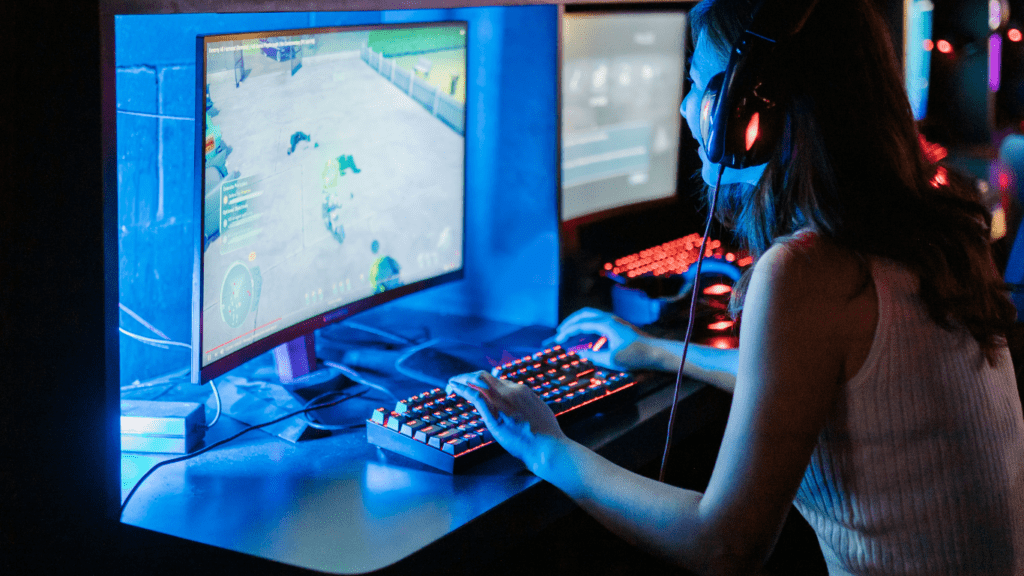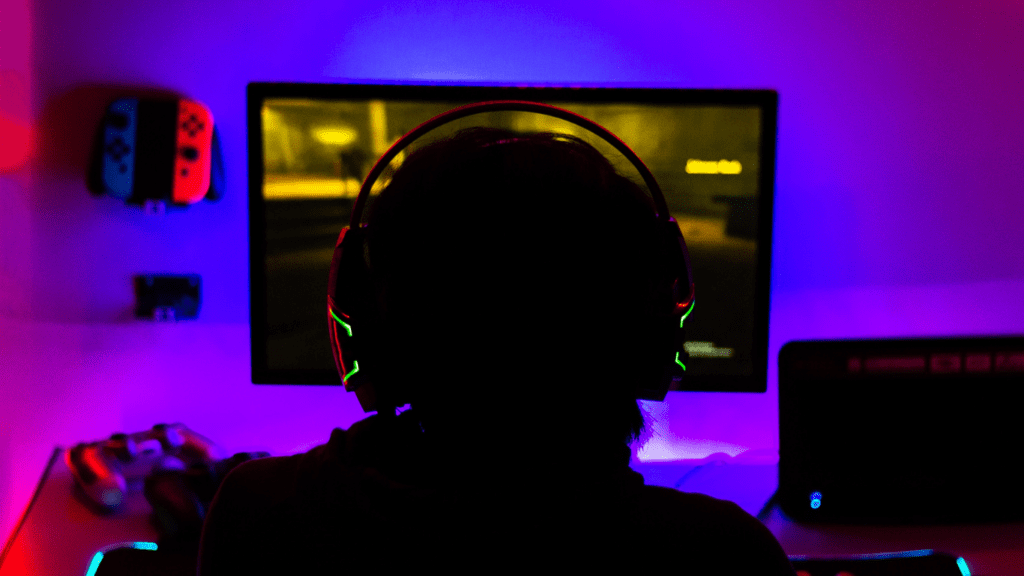Understanding E-Sports
E-sports have revolutionized gaming by turning casual play into competitive events. This section explores the fundamental aspects of e-sports and the games that have shaped this industry.
What Are E-Sports?
E-sports, or electronic sports, encompass competitive gaming at a professional level. Players or teams compete in various video games, from shooters to strategy games. Unlike casual gaming, e-sports involve structured tournaments, live audiences, and significant prize pools. The growth of streaming platforms like Twitch and YouTube Gaming further propels e-sports, garnering millions of viewers worldwide. E-sports organizations and sponsorships have legitimized it as a viable career path.
Popular E-Sports Games
Different games dominate the e-sports scene, each with its unique community and competitive framework.
- League of Legends: A multiplayer online battle arena (MOBA) game where two teams of five players battle to destroy the opposing team’s Nexus. It boasts one of the largest e-sports communities.
- Counter-Strike: Global Offensive (CS:GO): A first-person shooter where teams of terrorists and counter-terrorists compete in objective-based gameplay. One of the most iconic in the shooter genre.
- Dota 2: Another MOBA game that offers intense strategy and coordination. Known for The International, an annual tournament with multi-million dollar prize pools.
- Fortnite: A battle royale game where individuals or teams strive to be the last standing on an island. It combines building mechanics with shooting, making it unique in e-sports.
- Overwatch: A team-based shooter where players select from a roster of characters with unique skills. It emphasizes teamwork and strategic play.
- Call of Duty: A franchise with multiple iterations, specifically known for its team-based gameplay and annual professional league events.
Each of these games offers unique challenges and communities, allowing newcomers to find a niche that suits their interests and skills.
Essential Gear for E-Sports
Having the right gear is crucial for anyone starting in e-sports. The equipment you use directly influences your performance and comfort during long gaming sessions.
Gaming PC or Console
Choosing between a gaming PC and a console depends on the type of e-sports game you’re interested in. PCs are versatile, supporting a wider range of games including those that require high system specs like League of Legends or Counter-Strike: Global Offensive. A gaming PC should have a powerful CPU, a high-end GPU, at least 16GB of RAM, and an SSD.
Consoles like PlayStation and Xbox are simpler to set up and are cost-effective, perfect for games like Call of Duty or Fortnite. Consoles often come with standardized hardware, making them easier for beginners. For serious competitive play, consider high-performance variants like the PlayStation 5 or Xbox Series X.
Peripherals: Mice, Keyboards, and Headsets
Peripherals significantly affect your gameplay. An ergonomic and responsive mouse is essential for precision in FPS games. Look for mice with high DPI (dots per inch) settings and customizable buttons. Popular options include the Logitech G Pro and Razer DeathAdder.
Keyboards should have fast response times and durability. Mechanical keyboards with tactile switches are preferred for games requiring quick reactions. Models like the Corsair K95 RGB and SteelSeries Apex Pro are top choices.
Headsets improve in-game communication and immersion. A good gaming headset offers clear sound, noise cancellation, and a comfortable fit for extended wear. The HyperX Cloud II and SteelSeries Arctis 7 are reliable options.
Developing Your Skills
Improving in e-sports demands dedication and a strategic approach. Mastering both the game mechanics and meta will set you apart in competitive gaming.
Finding Tutorials and Guides
Many resources online offer extensive tutorials and guides. Websites like YouTube and Twitch host thousands of videos by experienced players who share their insights. Forums such as Reddit and game-specific subforums are also great places to find detailed guides. Always check for recent updates to ensure the information is current. Start with beginner guides, then gradually move to advanced strategies as your skills grow.
Practicing Efficiently
Effective practice in e-sports involves both quantity and quality. Allocate regular hours for practice, but avoid burnout by taking breaks. Focus on specific skills during each session, such as aim accuracy in first-person shooters like Counter-Strike: Global Offensive or wave management in MOBAs like League of Legends. Use tools like aim trainers, video replays, and in-game stats to track and analyze your performance. Join online communities and participate in scrimmages or low-level tournaments to gain real-world experience.
Joining the E-Sports Community

Getting involved in the e-sports community opens up networking and learning opportunities that enhance a gamer’s skills and experiences. Engaging with others who share the same passion offers valuable insights and support.
Online Forums and Communities
Participating in online forums and communities connects beginners with experienced e-sports players. Platforms like:
- Discord
- dedicated gaming forums
provide spaces for discussions, advice, and updates on games and strategies. For example, Reddit hosts subreddits such as r/esports and r/leagueoflegends where users share insights, post guides, and discuss recent events. These forums help in understanding game meta, discovering upcoming tournaments, and networking with fellow gamers. Discord servers often feature voice chats, enabling real-time conversations and collaborations during game sessions.
Participating in Local Tournaments
Competing in local tournaments offers practical experience and helps gauge skill levels. Websites like Battlefy and Smash.gg list local and regional tournaments across various games. Some local e-sports cafes and gaming lounges also host regular competitions. Participating in these events develops strategic thinking and adapts gameplay under competitive pressure. Additionally, local tournaments foster a sense of community, allowing face-to-face interactions with other gamers, which builds camaraderie and opens opportunities for team formations.
Streaming and Content Creation
Streaming and content creation play crucial roles in e-sports careers. They offer exposure, engage communities, and can become substantial income sources.
Setting Up Your Streaming Platform
Choosing the right platform is essential. Twitch, YouTube Gaming, and Facebook Gaming are the most popular options with vast, active communities. After selecting a platform, you’ll need to set up streaming software like OBS Studio or Streamlabs OBS, both user-friendly and free.
Your hardware also matters. A good webcam, a quality microphone, and a sturdy streaming PC or console are key components. Ensure your internet speed supports high-quality streaming; upload speeds of at least 6 Mbps are recommended for 1080p resolution.
It’s critical to maintain consistent streaming schedules. Stick to a routine to help build an audience. Utilize platform tools to alert followers when you’re live and engage viewers with live chat and interactive elements.
Building an Audience
Create engaging, high-quality content. This involves not only streaming gameplay but also offering commentary, tutorials, and Q&A sessions. Develop a unique personal brand to stand out.
Consistency in content is vital. Regular streaming and posting schedules help retain and grow your audience. Engage with your viewers on social media platforms like Twitter, Instagram, and TikTok; share clips and updates regularly.
Collaboration with other streamers can also boost visibility. Participate in community events, host other streamers, or join multi-stream sessions. These actions expand your reach and introduce you to wider audiences.
Engaging with your audience keeps them invested. Respond to comments, ask for feedback, and create content based on viewer preferences. Building a loyal community around your brand can significantly enhance your success in e-sports streaming and content creation.
Navigating the Competitive Scene
Entering the competitive e-sports scene can seem daunting, but with a structured approach, it’s manageable. Understanding the fundamentals helps you find your place and advance effectively.
Understanding Rankings and Tournaments
Rankings determine player skill levels and create a competitive hierarchy. For example, in games like League of Legends, players start in lower tiers such as Bronze and aim to climb to Challenger. Play ranked matches to improve your ranking; winning these matches gains you points and moves you up the tiers.
Tournaments range from local events to international championships. Local tourneys on platforms like Battlefy or Smash.gg offer beginners practical experience. Once you gain more skills, consider larger-scale tournaments such as ESL or DreamHack events, which often feature significant prize pools and media coverage. Understanding the rules of each tournament and its format is crucial for preparation and fair play.
Professional Teams and Sponsors
Professional teams provide structure and support, enabling players to focus on improving performance. Joining a team like Cloud9 or Fnatic usually involves rigorous tryouts, showcasing your skills against other hopefuls. Playing for a team offers advantages like coaching, training facilities, and salaried positions. Teams often have dedicated managers who handle logistics and negotiations, letting players concentrate on the game itself.
Sponsors play a critical role in e-sports, funding teams and events. Brands like Logitech, Red Bull, and Intel sponsor teams and tournaments, providing financial backing and necessary gear. To attract sponsors, maintain a strong online presence and interact with your audience. Sponsors seek players who can represent their brand and engage with fans both in and out of the game.


 Michaello Thomasters, the visionary founder of Bet Roll Gamble, has built a dynamic platform that serves as a hub for betting enthusiasts across various arenas, including sports, poker, horse racing, and esports. With a passion for providing valuable insights and strategies, Thomasters aimed to create a space where both novice and experienced bettors can enhance their skills and stay ahead of trends.
Michaello Thomasters, the visionary founder of Bet Roll Gamble, has built a dynamic platform that serves as a hub for betting enthusiasts across various arenas, including sports, poker, horse racing, and esports. With a passion for providing valuable insights and strategies, Thomasters aimed to create a space where both novice and experienced bettors can enhance their skills and stay ahead of trends.